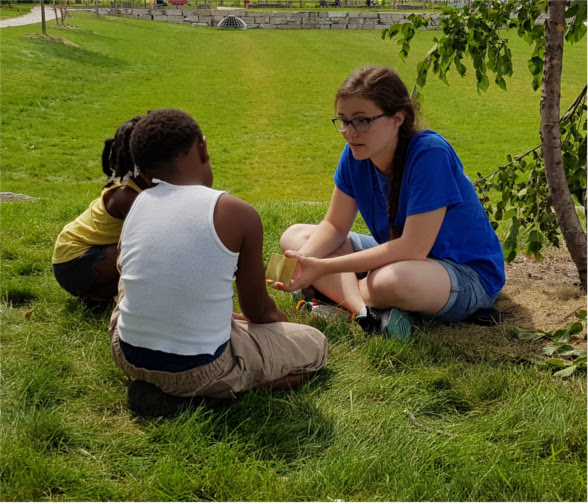Tips & Tricks
One Child at a Time
-Julie Cox
Enjoying the scenery on a recent vacation became a challenge as the traffic increased. “My goal is to be there by 3 p.m.,” my husband declared as he whizzed by another car. “And we’re going to do it one car at a time!” Goals can be important on vacation but they’re even more critical in the classroom. What goals do you have for your teaching? And how will you know when you’ve reached them?

Personal Development
A first step in setting goals is to discover who God has created you to be. Your Christian bookstore offers resources that discuss personality types and spiritual gifts. It’s important to know these traits about yourself so you can better use them. For example, if you are given to hospitality find ways to show it to your students.
Learn more about the age group you work with. Maybe you have a child you struggle to connect with because of his learning style. Libraries have many books on understanding and addressing different styles of learning. Using a variety of teaching methods will be fun and profitable for you and your class.
Do you need to establish a time to study your lesson or work on organizing and storing your teaching materials? Should you get up earlier Sunday morning to be in the classroom before your children arrive?
Being a good teacher requires putting effort into self-improvement.
Student Development
Teaching Objectives
What do you want the children to gain from your class? Most curriculum include a weekly teaching objective—the key idea children need to learn. It could be a statement of fact such as, “Jesus died and rose again to pay the penalty for sins.” It may direct kids to do something; e.g., “You can tell others about Jesus.” It could motivate a change in character like, “God wants you to be kind to others.”
Whatever your objective, it should be stated clearly and concisely. Make it something specific you want the child to know, be or do. Having a clear objective will enable you to focus your teaching and help kids meaningfully apply the truth to their lives.
Classroom Goals
The leaders of your program will play a major role in setting goals for your class so find out their expectations. Is the aim to increase Bible memory or simply to occupy the children during a potluck dinner? Do those in charge want you to create a fun place where kids can play and enjoy a light lesson? Or do they prefer a more structured environment where students spend considerable time studying God’s Word? Keeping in line with the general goals should provide overall direction as you plan your teaching time.
Individual Discipleship
In a class averaging 80 children it’s difficult to focus on the spiritual development of each child but God can and does. Every child is one of a kind. God has placed him in a unique family situation and has a specific plan for his life. God has also made you a part of that plan. As you pray for the children and prepare for class don’t be surprised at how He will use you to help them mature.
Setting goals and working toward their accomplishment will help you fulfill God’s plan. In His strength you can do it—one child at a time!
Stay Connected with CEF
Subscribe to our email lists to receive updates, news, and stories based on your needs and interests.